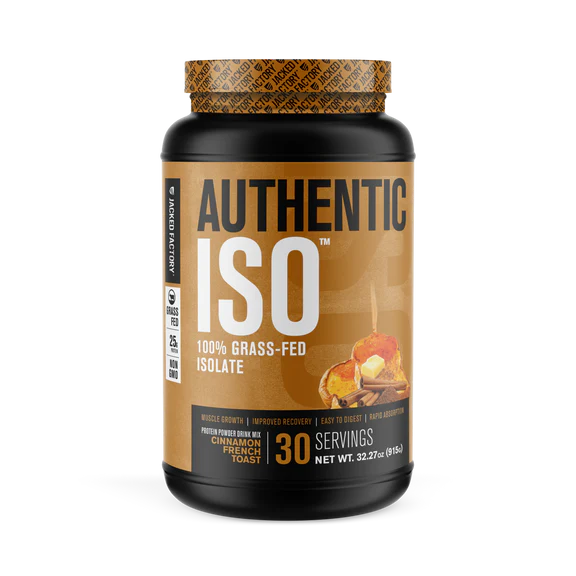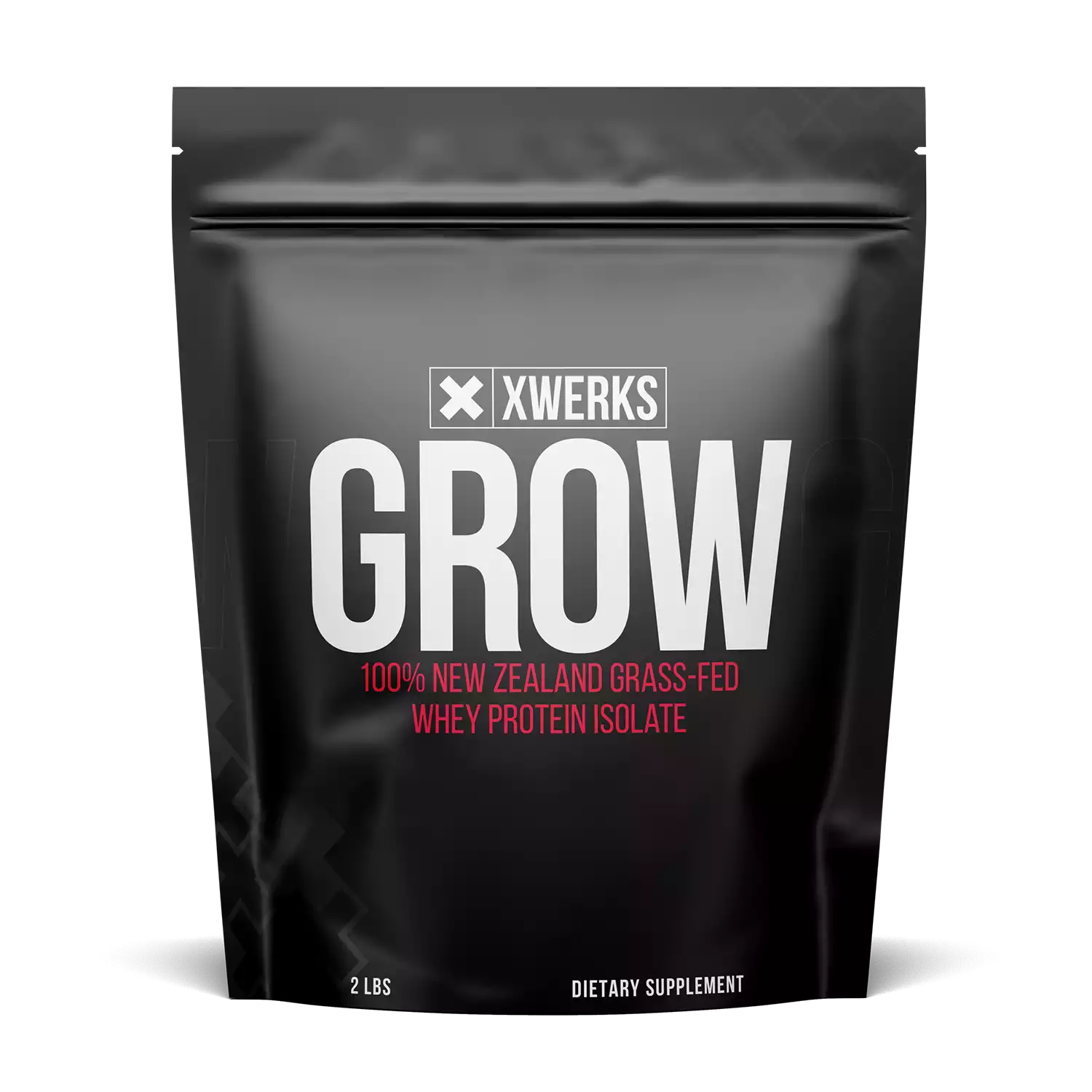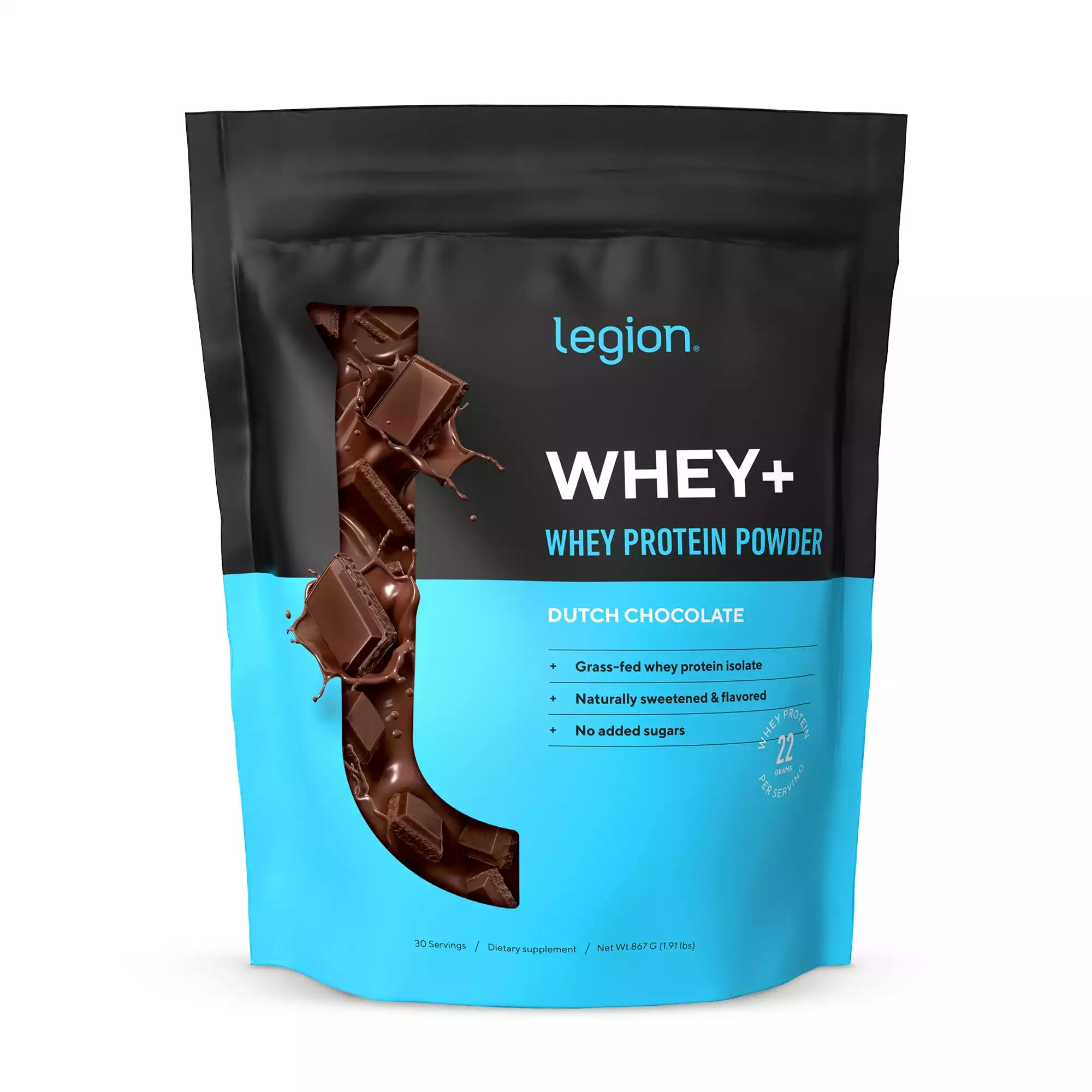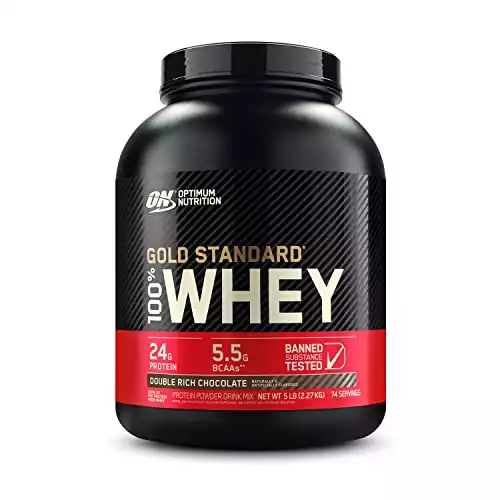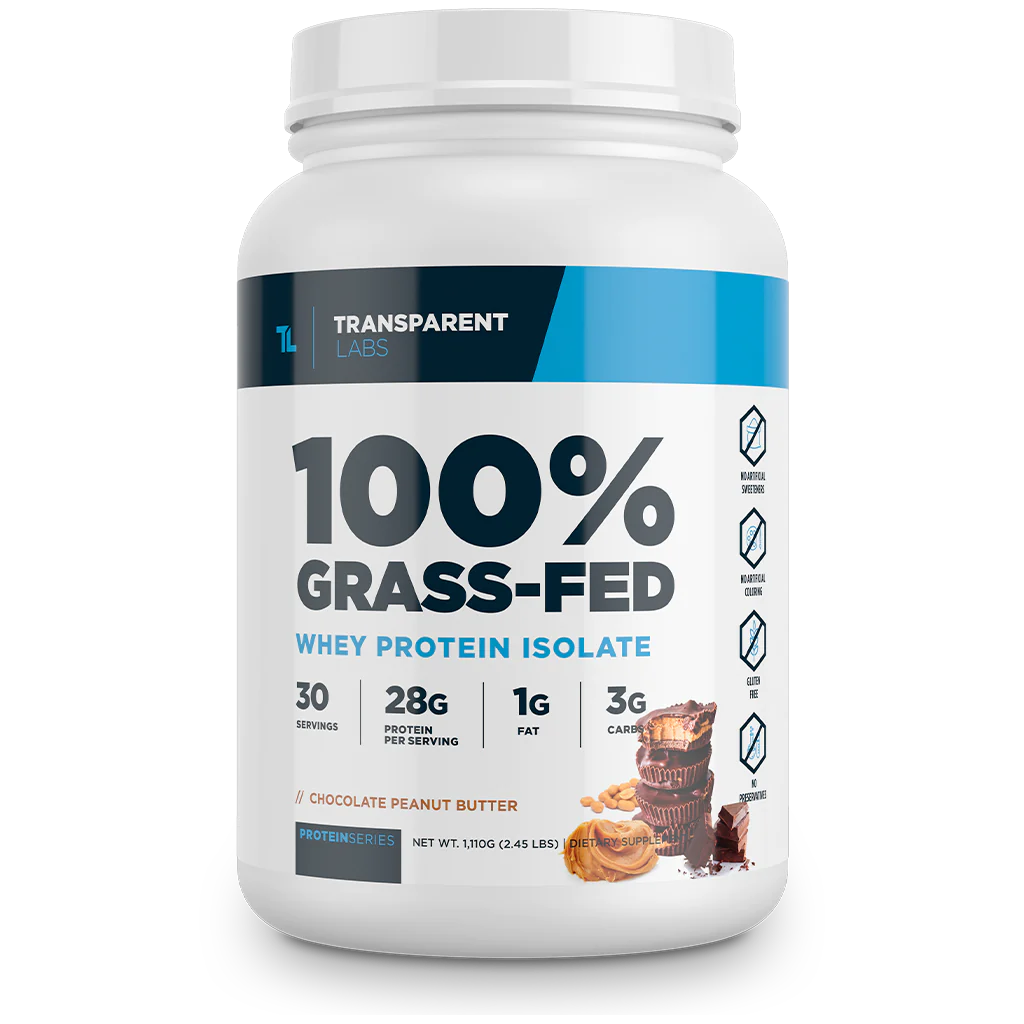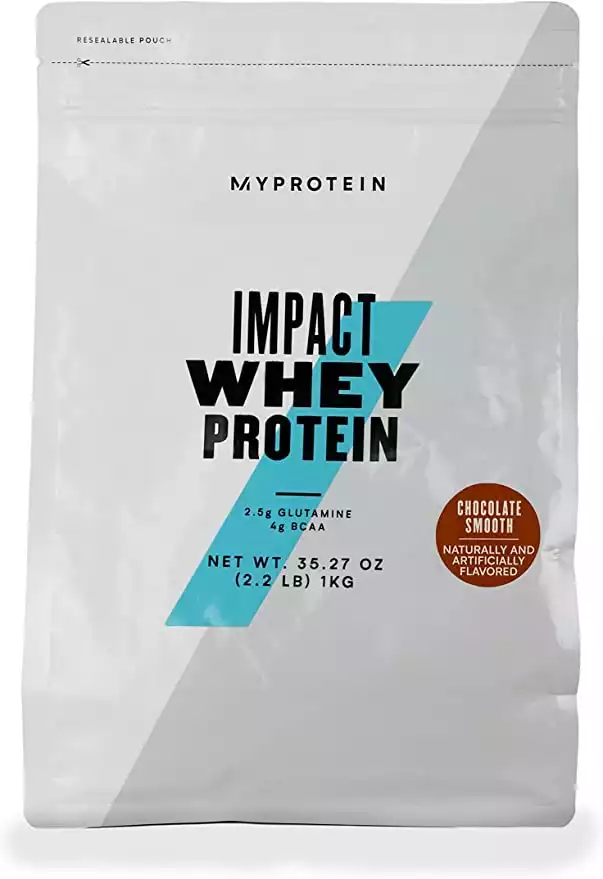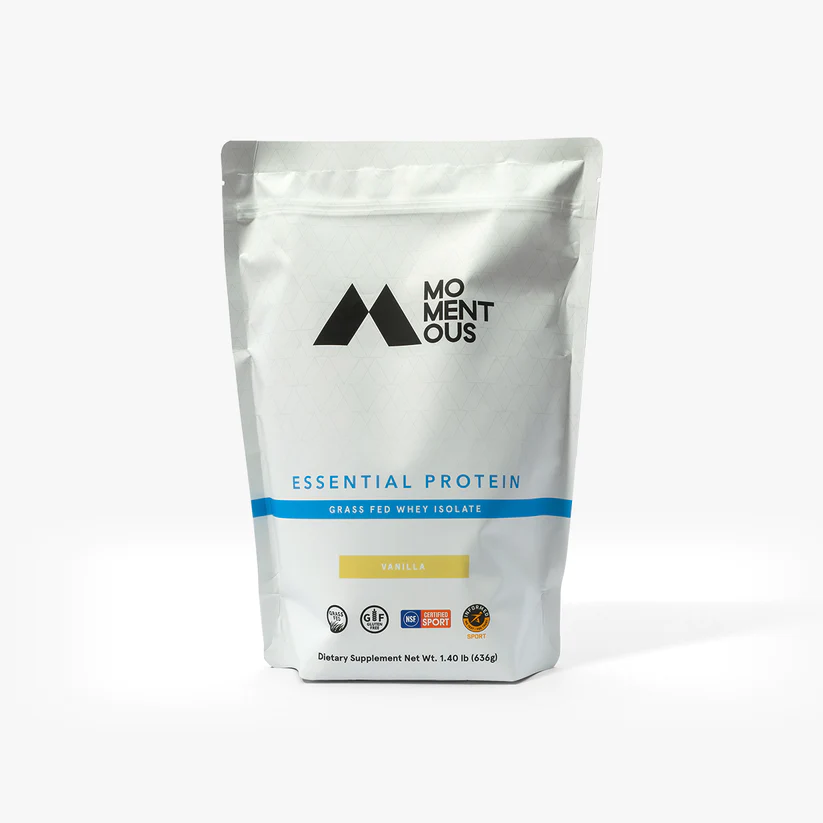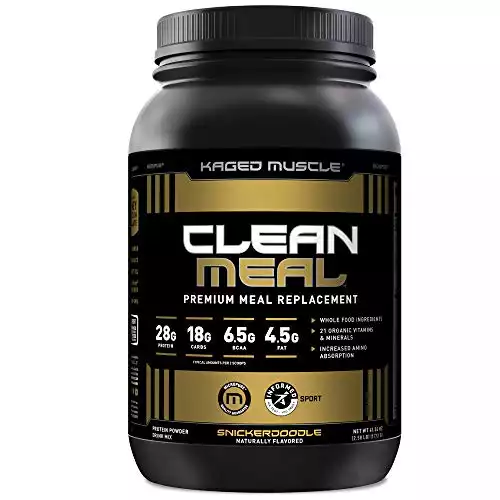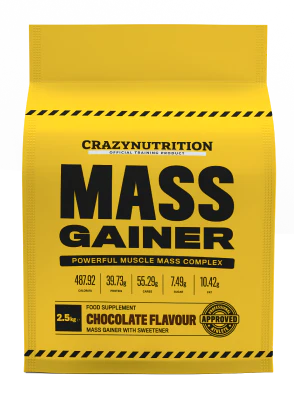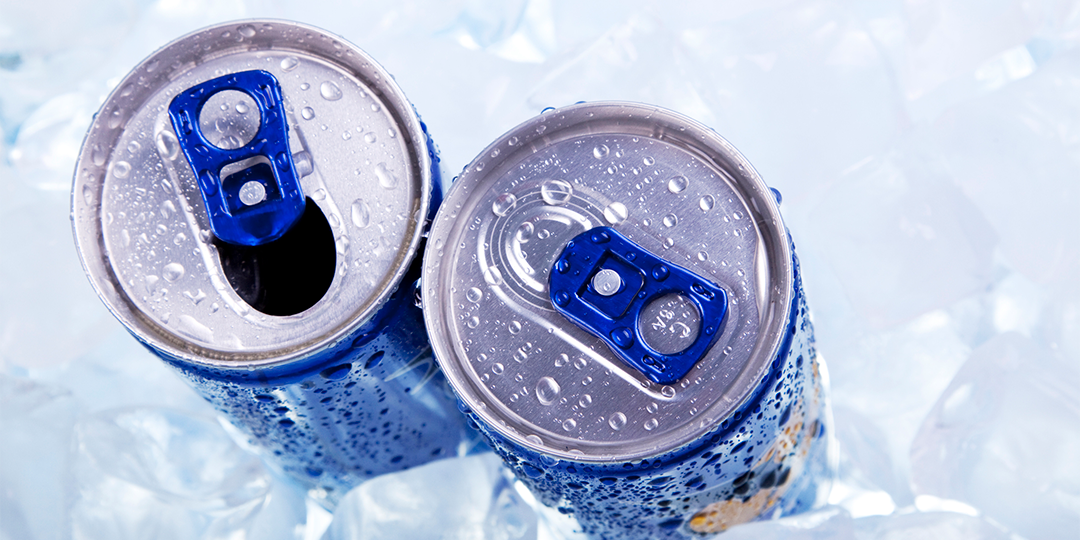The 10 Best Whey Protein Powders (2023 Update) | Breaking Muscle
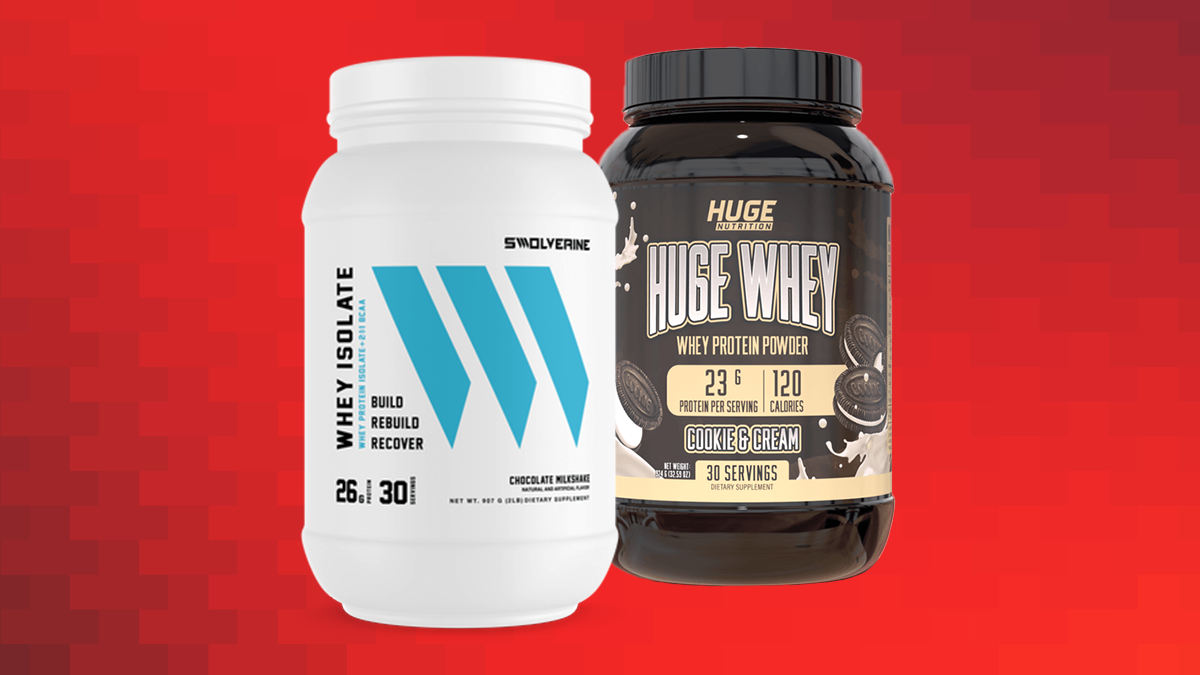
We receive free products and receive commissions through our links. See disclosures page.
Protein is one of the most widely utilized supplements on the market and there is a good reason behind it. It is one of the three macronutrients the body needs in order to function at its highest level. Plus, any dedicated gym rat knows that protein is the powerhouse macro that may assist on the journey to getting massive.
Studies suggest that gymgoers should consume between 1.6 and 2.2 grams of protein per kilogram of body weight daily for growth. (1) Individuals often turn to whey protein powder supplements to help them reach these goals. Whey proteins are derived from milk sources and are a delicious and easy way to get extra protein throughout your day. We considered the best whey protein powders that are suitable for a plethora of goals and made sure we tried dozens of products so we could provide high-quality, tasty, and protein-dense whey powders for you to add to your regimen.
Medical disclaimer: This article is intended for educational and informational purposes only. It is not intended as a substitute for medical advice. For health advice, contact a licensed healthcare provider.
Our Top Picks for the Best Whey Protein Powder
- Best Whey Protein Powder Overall: Jacked Factory Authentic ISO
- Best Whey Protein for Muscle Gain: XWERKS Grow
- Best Whey Protein for Weight Loss: Legion Whey+
- Best Whey Protein Powder for the Money: Optimum Nutrition Gold Standard
- Best Tasting Whey Protein: XWERKS Grow
- Best Whey Protein Isolate: Transparent Labs Grass-Fed Whey Protein Isolate
- Best Whey Protein Powder for Recovery: MyProtein Impact Whey Protein
- Best All-Natural Whey Protein Powder: Momentous Grass-Fed Whey
- Best Whey Protein Meal Replacement: Kaged Clean Meal
- Best Whey Protein for Weight Gain: Crazy Nutrition Mass Gainer
Best Whey Protein Powder Overall: Jacked Factory Authentic ISO
- Protein type: Whey isolate
- Number of servings: 30
- Cost per serving: $1.20 to $1.33
- Calories per serving: 110 to 130
- Protein per serving: 25 grams, depending on the flavor
- Flavors: Cookies & Cream, Unflavored (if you buy from Amazon)
- Third-party tested: No
Pros
- Derived from grass-fed, hormone-free cows
- Low in fat, carbs, and sugar
- Reasonably priced
Cons
- Some flavors contain gluten
- Contains sucralose
Jacked Factory Authentic Whey is one of the best protein powders you can buy due to its affordability, easy digestibility, solid macronutrient profile, and excellent solubility. Per scoop, you’ll get around 25 grams of protein from whey isolate or whey concentrate that’s derived from hormone-free, grass-fed cows. You’ll also find additional ingredients that can aid recovery. For example, the Himalayan pink salt in this protein powder may help your body’s fluid levels return to normal after a sweaty workout. (2)
Jacked Factory Authentic Whey is low in sugar, with most flavors having just one gram of total sugar and zero grams of added sugar. However, it contains sucralose and may not be the best option if you prefer to avoid artificial sweeteners. There are only one to two grams of fat per serving, which helps keep the calories low and makes it ideal for those following low-fat diets or tracking their macros.
It’s not clear whether this protein powder is third-party tested, but it is made in a cGMP-certified facility. This means the facility must adhere to certain manufacturing guidelines to ensure the safety and quality of its products. If you compete in a drug-tested sport, you may want to check out another protein powder that is guaranteed to be safe for athletes. But for most individuals who are simply looking for a high-quality whey protein supplement at a decent price, this could be a solid choice.
Best Whey Protein for Muscle Gain: XWERKS Grow
Protein type: Whey protein isolate
Number of servings: 30
Cost: $1.97 per serving
Calories per serving: 110
Protein per serving: 23 to 25 grams
Flavors: Chocolate, Peanut Butter, Strawberry, Vanilla
Third-party tested: No
Pros
- High protein content
- Gluten-free and has no added sugars
- Keto-friendly
- Offers more than six grams of BCAAs per serving
Cons
- Expensive
Most people know that packing on muscle requires you to lift weights consistently and increase your protein intake. If you have the training part down but struggle to get enough protein in your diet, consider XWERKS Grow. This whey protein powder delivers up to 28 grams of protein, depending on which flavor you choose, and offers more than six grams of quality branched-chain amino acids (BCAAs) (leucine, isoleucine, and valine) per serving. BCAAs are controversial, but some research shows that BCAA supplementation can prevent muscle breakdown and promote muscular growth after training. (3)
XWERKS Grow is one of the cleanest protein powders on our list. It contains whey isolate, a filtered form of whey that has virtually no fat or lactose, which contributes to the high protein content. It’s low in fat and carbohydrates, with each flavor providing less than two grams of each per scoop. There are also no artificial sweeteners, preservatives, or other fake additives. It uses stevia as a sweetener and natural products such as cocoa beans and vanilla beans for flavor.
At around $2.00 per serving, this isn’t a budget-friendly protein powder. But if you’re searching for a top-notch whey protein supplement with a superior ingredient list to help you build muscle, it’s worth considering.
Best Whey Protein for Weight Loss: Legion Whey+
- Protein type: Whey isolate
- Number of servings: 30 to 78
- Cost per serving: $1.54 to $2.00
- Calories per serving: 100 to 130
- Protein per serving: 21 to 24 grams
- Flavors: Apple Pie, Banana Bread, Cinnamon Cereal, Dutch Chocolate, Birthday Cake, Chocolate Peanut Butter, Cocoa Cereal, Cookies & Cream, French Vanilla, Fruity Cereal, Honey Cereal, Mocha Cappucino, Pumpkin Pie, Salted Caramel, Strawberry Banana, Unflavored
- Third-party tested: Labdoor
Pros
- Derived from cows that aren’t treated with growth hormones or antibiotics
- No gluten or added sugars
- Low in lactose due to the filtration process
- Excellent solubility
Cons
- One of the highest-priced protein powders on the market
To lose weight, you need to be in a calorie deficit, meaning eating fewer calories than your body burns each day. This doesn’t mean you need to give up your favorite supplements. However, you do need to be more mindful of their calorie content. Legion Whey+ may be an ideal whey protein powder for you because it contains less than two grams of fat and five grams of carbs, which keeps calories low. As well, it’s available in several delicious flavors, such as Salted Caramel and Chocolate Peanut Butter, which can help curb cravings for sugary treats.
The whey protein isolate in Legion Whey+ comes from grass-fed Irish cows, and grass-fed cows’ milk tends to be more nutritious than milk made from corn-fed cows. (4) There are no food dyes, artificial sweeteners, artificial flavors, or fillers. You also won’t find any added sugars. Legion Whey+ contains the natural sweeteners stevia and erythritol instead of high fructose corn syrup or other refined sugars.
Amanda Dvorak, an editor at Breaking Muscle, has used Legion Whey+ and was a big fan. “It didn’t leave me bloated or cause my skin to break out, which sometimes happens with cheaper protein powders,” she says. “It dissolved quickly in water with a shaker bottle. I also found that it mixed well with oatmeal, peanut butter, and a banana for a tasty post-workout snack.”
Best Whey Protein Powder for the Money: Optimum Nutrition Gold Standard Whey
Optimum Nutrition Gold Standard 100% Whey Protein Powder
- Protein type: Whey concentrate, whey isolate, hydrolyzed whey
- Number of servings: 71 to 76
- Cost per serving: $1.12 to $1.40
- Calories per serving: 112 to 130
- Protein per serving: 24 grams
- Flavors: Banana Cream, Chocolate Coconut, Chocolate Malt, Chocolate Mint, Coffee, Delicious Strawberry, Double Rich Chocolate, French Vanilla, Rocky Road, Strawberry Banana
- Third-party tested: Informed Choice
Pros
- Reasonably priced
- Wide range of flavors to choose from
- Different-sized tubs to choose from
Cons
- Contains sucralose and artificial flavorings
With over 20 flavors to choose from that each offers 24 grams of protein per serving, Optimum Nutrition Gold Standard’s versatility is a major selling point. The price tag only makes it more desirable. Some of the flavor choices include Banana Cream, Chocolate Mint, Coffee, Double Rich Chocolate, Strawberries & Cream, Rocky Road, Vanilla Ice Cream, and Unflavored, to name a few.
Each flavor contains between 110 and 130 calories, either one or one and a half grams of fat, and between two and four grams of carbs per serving. If you actively avoid sucralose or artificial coloring, you may want to choose a different whey protein, though, as this one contains both of those ingredients.
Bulk buying options mean you will pay less with the purchase of a bigger tub of protein — up to ten pounds, to be exact. If you opt for a two-pound tub with 28 servings in it, you’ll pay around $1.30 to $1.40 per serving, which is a very fair price for the market. If you choose to bulk buy in the five-pound tub, you’ll pay even less at just over $1.00 per serving. The more you buy, the less you pay, and the more you can focus on important things like making gains rather than your bank account.
Best Tasting Whey Protein Powder: XWERKS Grow
Protein type: Whey protein isolate
Number of servings: 30
Cost: $1.97 per serving
Calories per serving: 110
Protein per serving: 23 to 25 grams
Flavors: Chocolate, Peanut Butter, Strawberry, Vanilla
Third-party tested: No
Pros
- High amount of protein per serving
- No strange aftertaste
- Tastes great when mixed with water or milk
- Doesn’t have any artificial sweeteners
Cons
- Expensive
Few things are worse than trying to choke down an odd-tasting protein shake or throwing away a nearly full bag of protein powder because you can’t stand the taste. Fortunately, you don’t have to be concerned with either of these issues with XWERKS Grow.
Although this whey isolate protein only comes in four flavors, and despite the fact that it doesn’t contain added sugars or artificial sweeteners, it tastes great and is something you’ll look forward to drinking after an intense training session. And, whether you mix it with milk or water, you’ll probably wonder whether you’re drinking protein powder or a more decadent beverage.
Each scoop provides anywhere from 23 to 27.8 grams of protein, compared to other protein powders that only offer around 20 grams of protein per serving. Like all whey proteins, it’s a complete protein because it contains all of the essential amino acids your body needs to thrive. The whey comes from grass-fed cows from New Zealand, which is known for its high standards of cow welfare.
The only flaw we can find with XWERKS Grow is the price. At around $2.00 per serving, it may be out of reach for those with a strict budget in mind. But for those willing to pay more for grass-fed whey protein powder without any fillers, it could be an investment worth making.
Best Whey Protein Isolate: Transparent Labs Grass-Fed Whey Protein Isolate
Transparent Labs Grass-Fed Whey Protein Isolate
- Protein type: Whey protein isolate
- Number of servings: 30
- Cost: $2.00 per serving
- Calories per serving: 120 to 150
- Protein per serving: 28 grams
- Flavors: Chocolate Peanut Butter, Cinnamon French Toast, French Vanilla, Milk Chocolate, Mocha, Oatmeal Chocolate Chip Cookie, Strawberry, Unflavored, Vanilla Peanut Butter
- Third-party tested: Yes, by independent labs
Pros
- Free of gluten, GMOs, artificial preservatives, artificial sweeteners, and artificial colorings
- Has a higher protein content than many other options
- Low in fat, sugar, and carbs
- Good solubility
Cons
- Costs more than other whey protein powders
If you’re looking for a powder that is high in protein but low in carbs, fats, and lactose, a whey isolate is the right choice for you. An isolate is formulated similarly to other whey by adding enzymes to the milk, extracting the milk curds, and pasteurizing the leftover liquid whey. However, an isolate goes through an extra process that concentrates and then isolates it. This process leaves it at 90 percent protein by weight and ditches most of the fats, carbs, and lactose. (5)
With sweet macros, delicious flavors, and no artificial ingredients, Transparent Labs Whey Protein Isolate is hard to beat. This formula boasts an impressive 82 percent protein-to-weight ratio, with around 28 grams of protein per 34-gram scoop. The flavor choices are pretty solid as well. It comes in classics like Milk Chocolate and French Vanilla but also offers some more interesting flavors, such as Oatmeal Chocolate Chip Cookie.
One of the only downsides is that isolates are generally more expensive than other types of whey protein. You’ll see that reflected in this price per serving, which is around $2.00. Still, you may want to give it a try if you’ve struggled to find a whey protein isolate that can help you reach your goals.
Best Whey Protein for Recovery: MyProtein Impact Whey Protein Powder
Myprotein Impact Whey Protein Powder
- Protein type: Whey protein concentrate
- Number of servings: 10 to 200
- Cost: $0.95 to $1.30 per serving
- Calories per serving: 100
- Protein per serving: 19 grams
- Flavors: Birthday Cake, Chocolate, Chocolate Brownie, Chocolate Mint, Chocolate Smooth, Chocolate Stevia, Cinnamon Cereal, Fruity Cereal, Marshmallow Cereal, Mocha, Salted Caramel, Strawberry Cream, Unflavored, Vanilla, Vanilla Stevia, White Chocolate Peppermint
- Third-party tested: No
Pros
- Lots of flavors to choose from
- Available in bags up to 5.5 pounds
- Affordable
- Great taste and solubility
Cons
- Uses sucralose and artificial flavors
Protein is an important part of muscle recovery. Whey protein may be a superior form of protein due to its high amino acid content and its ability to be rapidly digested. (6) A serving of MyProtein’s Impact Whey offers 19 grams of whey protein concentrate to help your muscles grow back bigger and stronger after strength training.
Amino acids may be another important ingredient for potential recovery benefits. They are known as the building blocks of protein. One study suggests that ingesting BCAAs regularly can result in decreased perception of delayed muscle onset soreness (DOMS), leading to quicker recovery and getting back to the gym sooner. (7) With each scoop of Impact Whey, you get 4.5 grams of BCAAs.
This formula comes in 17 delicious flavors to make your recovery process easy and delicious. I personally love mixing the Chocolate Mint flavor in a cup of coffee — it tastes like a Peppermint Mocha from Starbucks! However, the downside is that Impact Whey uses sucralose and artificial flavors, which may be a turnoff for some.
Best All-Natural Whey Protein Powder: Momentous Grass-Fed Whey
Momentous Grass-Fed Whey Protein
- Number of servings: 24
- Cost per serving: $2.70
- Calories per serving: 90 to 100
- Protein per serving: 20 to 23.27 grams
- Flavors: Chocolate, Unflavored, Vanilla
- Third-party tested: Informed Sport, NSF Certified for Sport
Pros
- Includes digestive enzymes to aid nutrient absorption and support digestion
- No added sugar
- Gluten- and soy-free
Cons
- The protein content of the flavored options is on the low side
Momentous has appeared on our lists of the best collagen and best creatine supplements, and we couldn’t leave it off our choices for the best whey protein powder. Unlike some protein powders with long lists of ingredients, most of which are fillers, Momentous Grass-Fed Whey’s ingredients list includes just a few items. It does have things like silica that acts as an anti-caking agent, but you won’t find many other artificial or unnecessary ingredients.
Some protein powders are only palatable when mixed with milk or blended into a smoothie with fruit, but that’s not the case with Momentous Grass-Fed Whey. While it won’t be as thick or decadent if you mix it with water, it still has a pleasant taste. We also love that it contains digestive enzymes to help your body absorb it more rapidly and prevent bloating. It’s also third-party tested to ensure it’s free of banned substances.
At around $2.70 per serving, this isn’t an ideal choice for budget-conscious athletes. However, signing up for auto-deliveries brings the cost down to a more reasonable $2.30 per serving. Plus, not many protein powders are as natural as this one. You’re paying for the reassurance that you’re consuming a safe product.
Best Whey Protein Meal Replacement: Kaged Clean Meal Protein Shake
Kaged Clean Meal Protein Shake
- Number of servings: 13 to 20, depending on how many scoops you take
- Cost per serving: $1.95 to $3.88
- Calories per serving: 240 to 360
- Protein per serving: 28 to 42 grams
- Flavors: Chocolate Peanut Butter, Snickerdoodle, Vanilla Cake
- Third-party tested: Informed Sport
Pros
- Offers a convenient meal replacement option for on-the-go lifestyles
- Can be used for bulking due to the higher calorie, fat, and carb content
- Boasts a well-rounded micronutrient profile
Cons
- Sweetened with sucralose
- The powder can be messy
If you’re bulking, looking to replace a meal, or need some extra calories on the go, a meal replacement shake like Kaged Clean Meal may be your best bet. An extra bonus is that this pick can help fill nutritional gaps with its impressive micronutrient list.
Unlike isolates or even a whey concentrate, the Kaged Clean Meal Protein Shake offers a higher amount of macronutrients per serving. Each three-scoop serving contains seven grams of fat, 28 grams of carbs, and 42 grams of protein, as well as a total of 360 calories. The tub gives both two and three-scoop serving size options, which land at 20 and 13 servings per container, respectively. This formula comes in Snickerdoodle, Chocolate Peanut Butter, and Vanilla Cake flavors.
Most whey protein powders aren’t known for their dense micronutrient profile, but Kaged is an exception to the rule. It contains 23 various vitamins and minerals (such as vitamins A, B, C, E, and K). Twenty-one of the 23 have 40 percent of your RDI, while calcium is at 20 percent and potassium is at six percent of your RDI. To round it all out, there is an impressive fruit and vegetable profile in this supplement as well. It includes some big hitters like broccoli, spinach, kale, and two types of mushrooms.
Best Whey Protein Powder for Weight Gain: Crazy Nutrition Mass Gainer
- Number of servings: 20
- Price per serving: $4.50
- Calories per serving: 488
- Protein per serving: 39 to 40 grams
- Fat per serving: 10 grams
- Carbohydrates per serving: 55 to 56 grams
Pros
- Uses oat flour as a carb source for sustained energy
- Contains digestive enzymes to help limit digestive discomfort
- Customers enjoy the taste
Cons
- Only two flavors
- Sweetened with artificial sweeteners
- High in saturated fat
One of the most important — if not the most important — factors for gaining weight is consuming enough calories to be in a caloric surplus. That means you consume more calories than you are burning in a day. But when you’re trying to hit a caloric surplus, the amount of food you have to eat can be daunting. Crazy Nutrition Mass Gainer packs high macros to assist you in getting closer to your weight gain goals without feeling overly full from stuffing your face with endless amounts of chicken and rice.
Each four-scoop serving contains 488 calories, 10 grams of fat, around 56 grams of carbs, and nearly 40 grams of protein — this whey concentrate formula isn’t messing around. It’s tasty, too, with its Vanilla and Chocolate flavor options. You can easily use either one in a smoothie with various fruits and nut butters if you want to boost the calorie count even more.
The price point is a direct reflection of the intense macro profile at $5.13 per serving. When compared to a regular meal you’d be eating, it isn’t too shocking. But compared to any regular protein on this list, it’ll look much higher.
What Are The Benefits of Whey Protein Powder?
Whey can be a staple for many gymgoers for several reasons. Whey is convenient, generally inexpensive, and a great way to get some protein into your diet throughout the day. The benefits of whey are plentiful, so read on to learn about some of the main benefits that supplementing with whey offers and some of the reasons people choose to use it.
Convenience
A whey formula makes it really easy to consume your protein on the go. When you utilize a whey protein powder supplement, it can become effortless to get your protein in at the gym, in class, or at your job. It also eliminates the fuss around packing a meal, remembering and using silverware, or making sure you have a microwave to heat your food.
Protein Content
Wheys are generally fairly protein dense as they keep fats and carbs lower in comparison to caseins. This isn’t true if you opt for a meal replacement shake or a mass gainer, but typically speaking, whey proteins are an excellent source of protein without having to compromise on other macros. One literature review about whey protein found that the protein content in a whey powder has high amino acid content, making it a high-quality source of protein. (6)
Recovery
Protein is an essential tool for muscle recovery as protein is what our muscles are made up of. Whey protein specifically has a strong ability to stimulate muscle protein synthesis even when compared to casein and soy proteins. This is mainly due to the amino acid profile along with the high protein content per serving. (6)

When we break down our muscle tissue during exercise, we have to utilize protein in order to repair muscle fibers for our muscles to grow back bigger and stronger. Whey protein is a solid way to get in a major dose of protein right after a lift to ensure you’re maximizing your gym time.
Versatility
There’s also a lot to be said about the versatility of whey protein. It can be delicious when mixed with water or a milk of your choice. It can also be a great addition to your post-workout smoothie or shake, promoting protein intake while adding in some sneaky micronutrients from blueberries or spinach, as well. It may also be utilized for healthier baking alternatives or just an extra hit of protein in those energy balls or protein muffins you like to snack on during the day.
Hypertrophy
Hypertrophy is your body’s ability to increase muscle growth, and protein intake can be a major influence on how effectively that is done. Studies suggest that supplementing dietary protein can lead to leaner body mass, as well as muscle gains when paired with resistance training. (8) Although this study didn’t specifically call out whey protein, it did suggest that the type of protein makes a difference. Whey protein tends to have high protein content, and many formulas contain the added benefit of BCAAs, which may lead to better recovery and more hypertrophy. (8)
Strength
Strength is an obvious and commonly sought-after benefit of spending time in the gym and lifting weights. Whey protein is often used to supplement after an intense workout to promote recovery, muscle growth, and strength gains. There’s good evidence that suggests that whey protein supplementation may be beneficial for increases in skeletal muscle mass, muscular strength, and functional capacity as was shown through a study done on older women. (9) Another study found that whey protein was superior when it came to its ability to stimulate muscle protein synthesis, and this is chalked up to the amino acid profile found in whey. (8)
What To Know Before Buying Whey Protein
There are so many factors when it comes to buying protein powder that it can make your head spin. It’s always a good idea to think about your goals, budget, dosage, and enjoyability when deciding to add a new supplement to your stack.
Goals
Your goals will be the main factor when it comes to deciding what type of protein to buy. If you’re a bodybuilder and you’re looking for some serious protein per serving while keeping your fats and carbs low, isolate may be the way to go. That way you can eat your carb and fat sources from foods that you enjoy. If you have trouble consuming enough calories during the day and you’re trying to make it into the next weight class, one of the best mass gainers may be the right choice for you due to its robust macro content.
Budget
Buying a whey protein powder shouldn’t cost so much that it breaks the bank. There is a lot of variety on pricing in this list, and it’s a solid idea to check in with your budget to see what you can afford before considering your options. To get the price per serving, you just take the full price of the supplement and divide it by the number of servings in each tub or bag of protein.
When you have the amount per serving, it’ll be easier to break down what is reasonable for your budget. It’s important to note you don’t need a whey protein in order to succeed in the fitness world, but if it fits your budget, it can be an extremely helpful tool to move you closer to your goals.
Dosage
Each protein powder on this list will have various macronutrients. Some of our picks have close to 30 grams of protein per serving while others have 20. If you’re just looking for a bump of protein throughout your day then 30 grams might be more than you need, and you may even save a little cash by opting for a lower dose.

However, if you’re looking to max out protein intake or even replace a meal with a shake it may be best to go for one of our higher protein content picks, or even a mass gainer or meal replacement shake.
Micronutrients
It’s safe to say that many people don’t turn to whey protein in hopes of filling nutritional gaps with a solid micronutrient content. There are a few exceptions to this, however. If you go with a meal replacement whey supplement, or even a mass gainer, you’re more likely to get a decent amount of micronutrients alongside a solid dose of protein from the whey. Whey protein supplements in general tend to have a few micronutrients (like vitamin D and calcium), but they may not have the whole lineup, like a true meal replacement would.
Enjoyability
If you don’t enjoy the taste of the whey you chose, or find you suffer from digestive discomfort when you use it, it’ll be difficult to maintain a consistent intake of whey protein. It’s often said that the best form of exercise is the type you enjoy doing because it means you’ll show up, work hard, and maintain consistency. Picking a whey protein powder is very similar. You’ll want to consider flavors you’ll enjoy, how you want to consume it — protein shake, baked goods, in your morning oatmeal, etc. — and what factors will keep you coming back again and again.
Types of Whey
There are several types of whey that we cover on this list and we want to touch on some of the whey protein options available on the market. Whey is a type of protein that is derived from milk and includes eight various proteins; beta-lactoglobulin, alpha-lactalburnin, glycomacropeptide, immunoglobulins, bovine serum albumin, lactoferrin, lactoperoxidase, and lysozyme. To end up with a whey protein, the manufacturers add enzymes to the milk which ends up separating the whey from the milk curd. Then, they remove the milk curd which leaves only the liquid whey behind. Once it’s separated, they pasteurize and heat the whey, which turns it into a powder. (5) From there, they will go through a process to become the various types of whey, which we discuss further below.
Whey Concentrate
A whey concentrate is one of the most popular types of whey because it’s less expensive than, say, an isolate or a hydrolyzed whey. The concentrate will be 80 percent protein by weight and will have varying levels of lactose, fats, carbs, and protein content. On the upside, it is usually richer in taste because it is higher in fat and lactose — but that’s not necessarily great for those who are in prep for a show or in a cutting phase who need to keep their macros (beyond protein) lower. It’s also not great for those who have lactose intolerance, so that’s something to keep in mind.
Whey Isolate
A whey isolate goes a step further in processing from a concentrate as it needs to be 90 percent protein by weight. After it goes through the regular process, it is then concentrated, and finally, it’s isolated. This takes a bigger percentage of fats, carbs, and lactose out, which leaves a higher density of protein behind. Isolates are generally a better option for those who suffer from lactose intolerance, but it’s always best to check with a healthcare professional if you have any dietary concerns about adding a whey protein to your diet. (5) Isolates are a solid choice for those who need a high amount of protein, but who also want to keep fats and carbs to a minimum.
Whey Hydrolysate
Hydrolyzed whey, or a hydrolysate, is whey that is known for its easy digestibility. If you’re someone who suffers from digestive discomfort when you take a whey supplement, this may be a great choice for you. The reason it tends to be more digestible is that the peptide chains that make up protein are broken down into smaller, more digestible chains. (5) It tends to be more expensive than, say, a concentrate because it takes a more intense process to break down the peptide chains.
How We Chose Our Picks
There were tons of factors to consider when we built this list. We looked at formulation, sweeteners, and price to help you find the best options on the market.
Formulation
Formulation is one of the biggest factors we consider when we put these lists together. We chose protein supps that are made from whey concentrate, whey isolate, and vegan protein sources to ensure there’s something for almost everyone here. We also chose some fairly simple protein powders that have as little as five ingredients, as well as more robust ingredient lists that can replace entire meals.
We consider both natural and artificial ingredients, but we did include one pick that is 100 percent organic. There are some that we prioritized for being budget-friendly over organic or all-natural for those who consider price more strongly than specific ingredients. There is no right answer or one protein powder that fits all. We did our best to choose a variety of protein powders to fit a variety of needs, and build a robust list for you to choose from.
Sweeteners
Sweeteners can be a hit or miss factor for some protein powder enthusiasts. Some people really don’t like the taste or artificial sweeteners, and some people may even experience digestive discomfort from consuming them. We picked some proteins that contain stevia or sucralose, which can be a bit too sweet or a bit off-tasting to some people, while others may prefer them.
There are also picks that are 100 percent natural and contain no artificial sweeteners or flavors at all. It’s really about personal preference — some people find the sweeter protein powders to be enjoyable while others prefer a milder or even unflavored option to cut sugars completely. We looked through dozens of options to make sure there was something to fit each individual’s needs on this list.
Price
Price will always be one of the most important factors when it comes to adding new supps to your stack. We tried to include a range of protein powders at price points to suit virtually anyone who wants to add a protein supplement to their daily routine. We have some big hitters like mass gainers, which cost over $5.00 per serving.
We also have some wheys that are on the less expensive side, closer to the $1.00 per serving mark. Rest assured that all of these protein powders are held to a high standard. However, our price points on this list vary based on the ingredient list, type of protein, extras, and bulk buy options.
Final Thoughts
If your goals are geared towards muscle growth, maintaining lean muscle mass, or just hitting your macros, whey protein powder may be a helpful supplement to help move you closer to your goals. Protein is one of three macronutrients necessary for biological function. Many studies have suggested that protein is an important factor for gaining muscle mass and maintaining lean body mass. (10) Whether you want to drink it straight, mix it into a post-workout shake, or use it to replace a meal, there is a product on this list that is best suited to your needs.
We took the guesswork out to provide you with a handful of high-quality and delicious whey protein powders that may suit your individual goals. With high protein content, delicious flavor choices, and a variety of types of protein, this list delivers the goods, and all you have to do is pick which one is best suited for your needs.
FAQs
What whey protein is best?
The best whey protein often comes down to personal preference. However, we like Jacked Factory Authentic ISO because it comes from grass-fed gows, isn’t too expensive, and offers around 25 grams of protein per serving. It’s also low in fat, carbs, and sugar, which is ideal for those who are meticulous about tracking their macros.
What is the best protein powder for weight loss?
We recommend Legion Whey+ for weight loss. It’s a whey isolate, so you get very little fat, sugar, and carbs with each scoop. This helps keep the calories low. You can find it in several delicious flavors, like Salted Caramel and Chocolate Peanut Butter, to help curb your sweet tooth and keep you reaching for fatty, sugary desserts.
What is the best protein powder that doesn’t cause bloating?
A whey isolate like Transparent Labs Whey Protein Isolate is typically best if you want to avoid bloating. Whey isolate is filtered to remove almost all lactose, so it may be gentler on the stomach. You can also look for protein powders with digestive enzymes in them, like Momentous Grass-Fed Whey Protein Powder, to avoid digestive discomfort.
Research
- Stokes T, Hector AJ, Morton RW, McGlory C, Phillips SM. Recent Perspectives Regarding the Role of Dietary Protein for the Promotion of Muscle Hypertrophy with Resistance Exercise Training. Nutrients. 2018 Feb 7;10(2):180. doi: 10.3390/nu10020180. PMID: 29414855; PMCID: PMC5852756.
- Himalayan pink salt after workout – Zorbas, Y. G., Kakurin, V. J., Kuznetsov, N. A., & Yarullin, V. L. (2002). Fluid and salt supplementation effect on body hydration and electrolyte homeostasis during bed rest and ambulation. Acta astronautica, 50(12), 765–774. https://doi.org/10.1016/s0094-5765(02)00012-7
- BCAAs for muscle growth – Shimomura Y, Murakami T, Nakai N, Nagasaki M, Harris RA. Exercise promotes BCAA catabolism: effects of BCAA supplementation on skeletal muscle during exercise. J Nutr. 2004 Jun;134(6 Suppl):1583S-1587S. doi: 10.1093/jn/134.6.1583S. PMID: 15173434.
- Alothman, M., Hogan, S. A., Hennessy, D., Dillon, P., Kilcawley, K. N., O’Donovan, M., Tobin, J., Fenelon, M. A., & O’Callaghan, T. F. (2019). The “Grass-Fed” Milk Story: Understanding the Impact of Pasture Feeding on the Composition and Quality of Bovine Milk. Foods (Basel, Switzerland), 8(8), 350. https://doi.org/10.3390/foods8080350
- Pogored. (2021, August 2). Whey protein: Health benefits and potential side effects. Cleveland Clinic. Retrieved June 28, 2022, from https://health.clevelandclinic.org/is-whey-protein-good-for-you/
- Devries MC, Phillips SM. Supplemental protein in support of muscle mass and health: advantage whey. J Food Sci. 2015 Mar;80 Suppl 1:A8-A15. doi: 10.1111/1750-3841.12802. PMID: 25757896.
- Ra SG, Miyazaki T, Kojima R, Komine S, Ishikura K, Kawanaka K, Honda A, Matsuzaki Y, Ohmori H. Effect of BCAA supplement timing on exercise-induced muscle soreness and damage: a pilot placebo-controlled double-blind study. J Sports Med Phys Fitness. 2018 Nov;58(11):1582-1591. doi: 10.23736/S0022-4707.17.07638-1. Epub 2017 Sep 22. PMID: 28944645.
- Churchward-Venne TA, Murphy CH, Longland TM, Phillips SM. Role of protein and amino acids in promoting lean mass accretion with resistance exercise and attenuating lean mass loss during energy deficit in humans. Amino Acids. 2013 Aug;45(2):231-40. doi: 10.1007/s00726-013-1506-0. Epub 2013 May 5. PMID: 23645387.
- Nabuco HCG, Tomeleri CM, Sugihara Junior P, Fernandes RR, Cavalcante EF, Antunes M, Ribeiro AS, Teixeira DC, Silva AM, Sardinha LB, Cyrino ES. Effects of Whey Protein Supplementation Pre- or Post-Resistance Training on Muscle Mass, Muscular Strength, and Functional Capacity in Pre-Conditioned Older Women: A Randomized Clinical Trial. Nutrients. 2018 May 3;10(5):563. doi: 10.3390/nu10050563. PMID: 29751507; PMCID: PMC5986443.
- Kreider, R. B., & Campbell, B. (2009). Protein for exercise and recovery. The Physician and sportsmedicine, 37(2), 13–21. https://doi.org/10.3810/psm.2009.06.1705


